Healing - Elijah, Elisha 1
Kevin Ireland

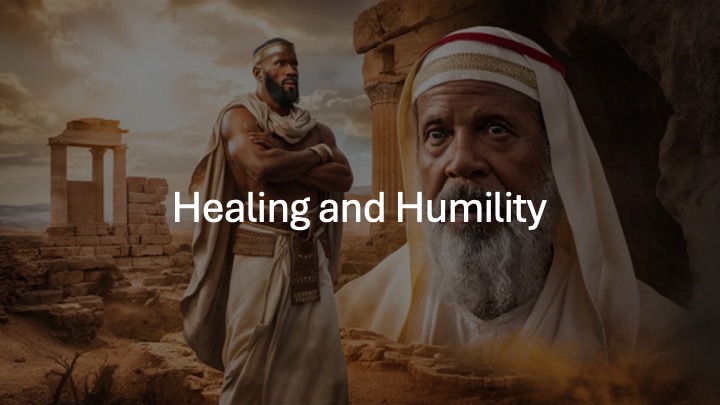
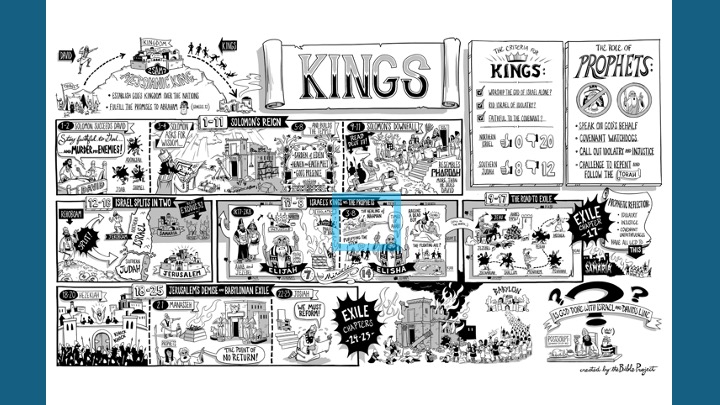
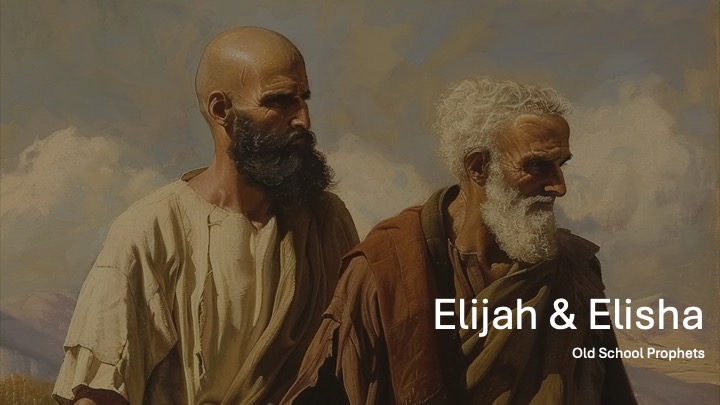
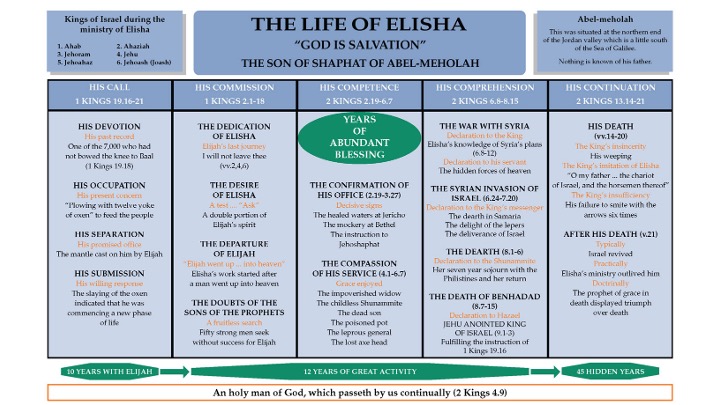
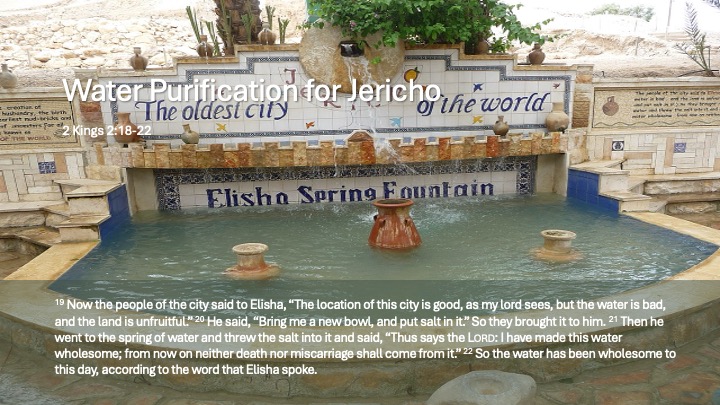
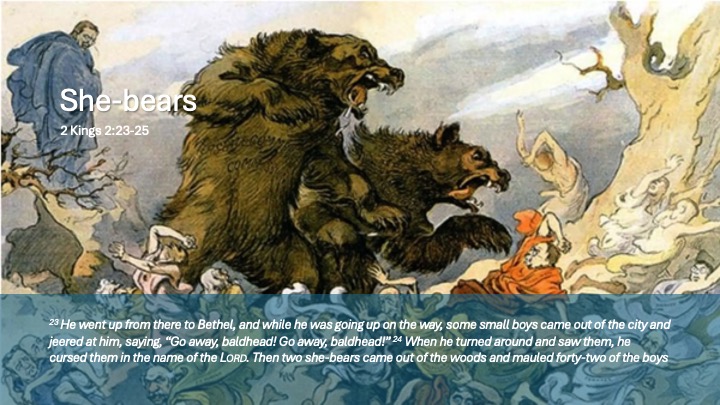
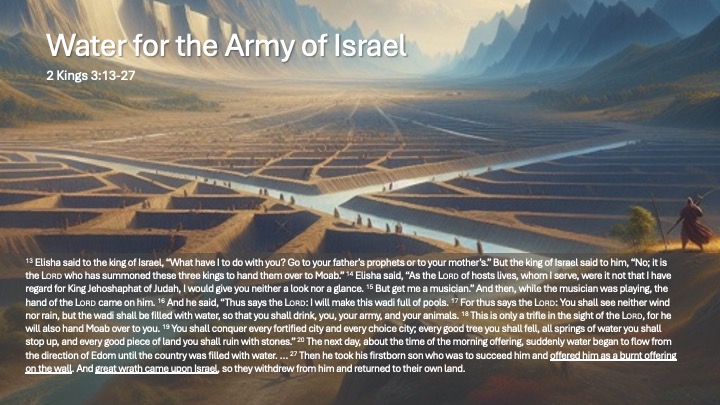
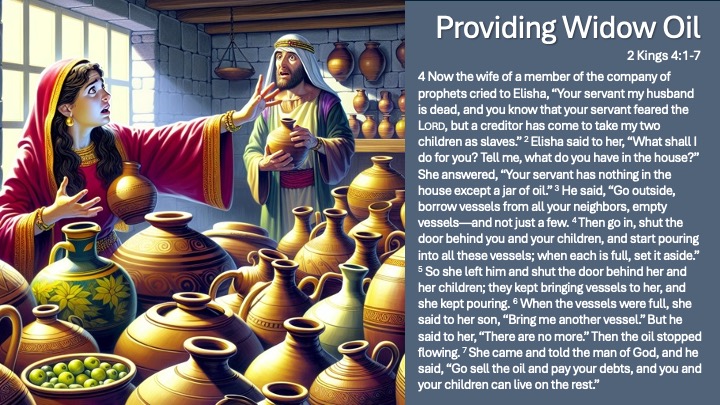
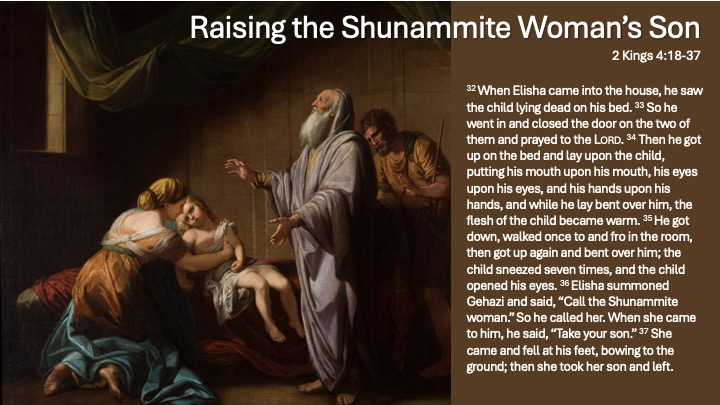
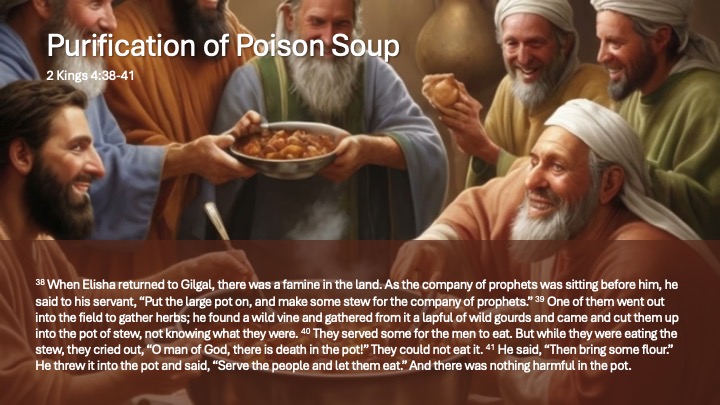
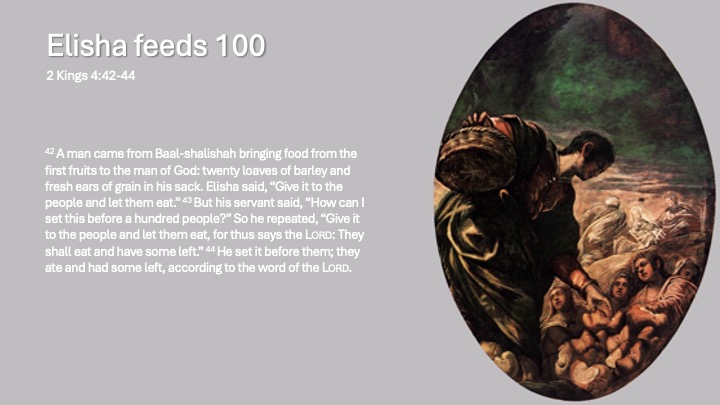
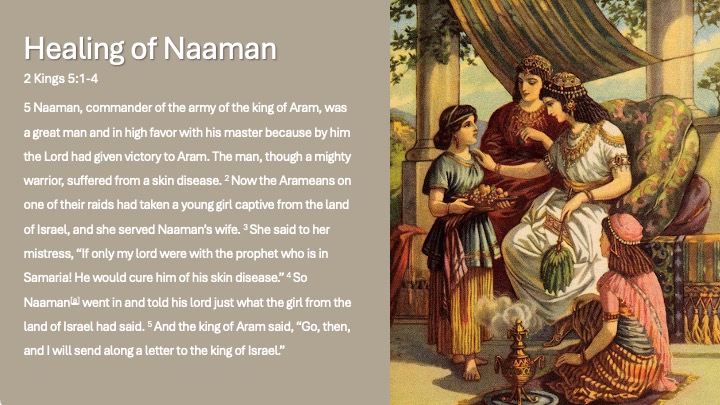
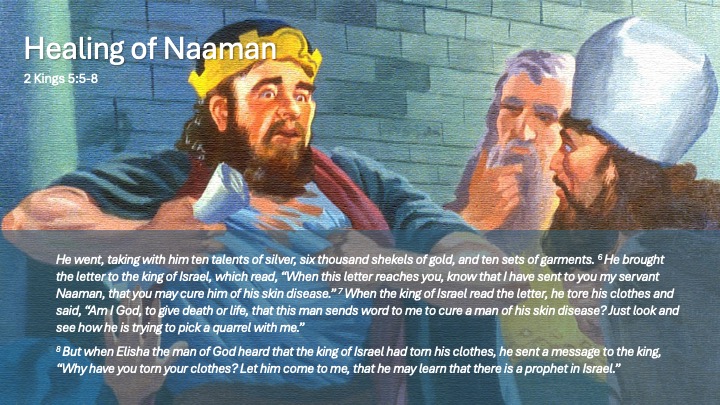
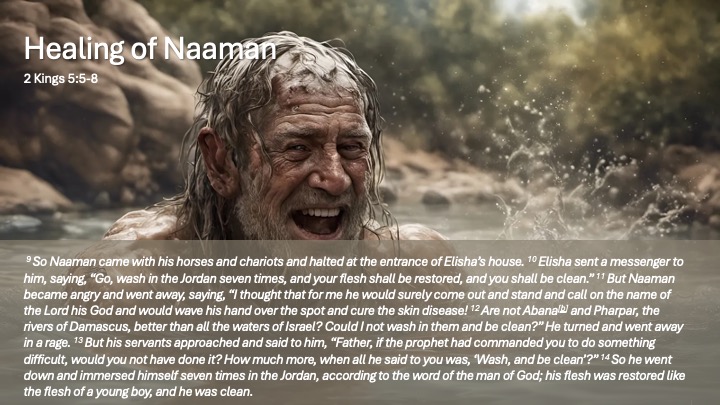
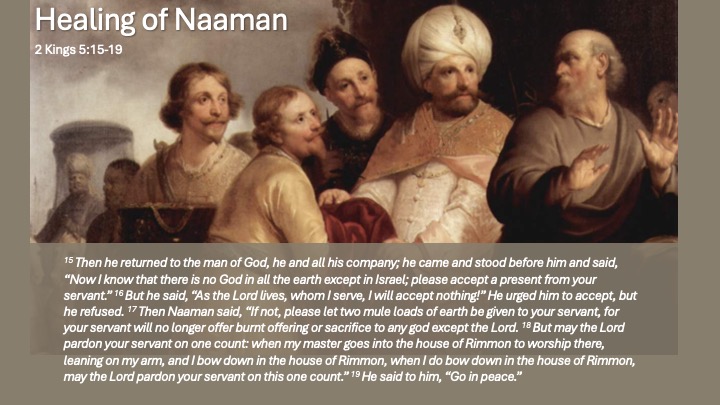
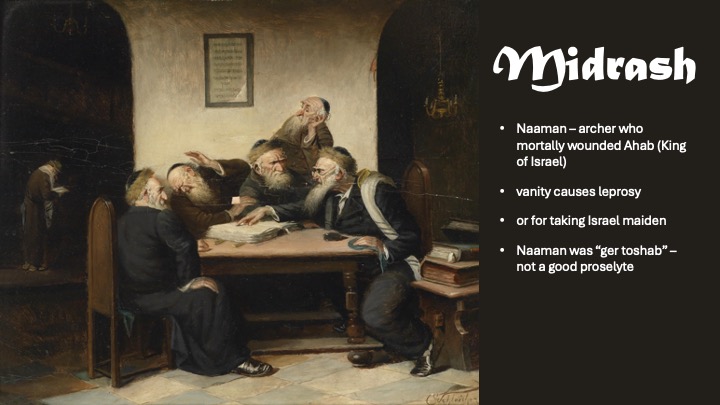
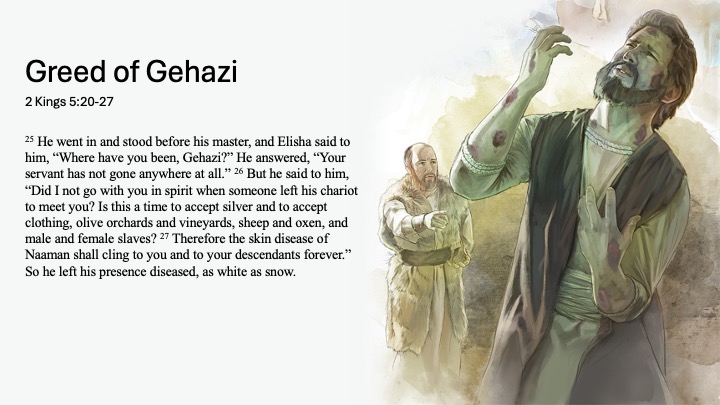
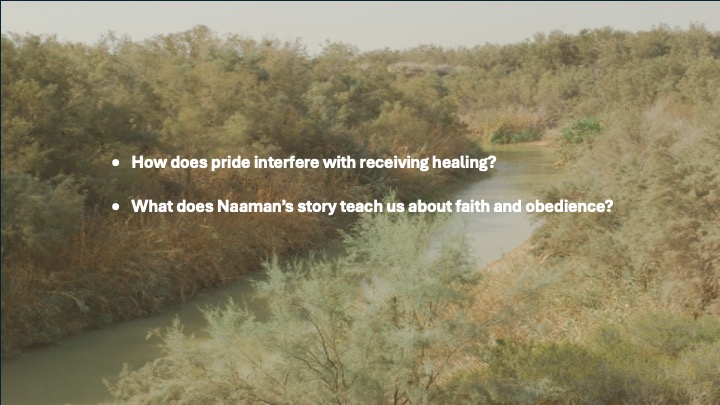
Healing - Elijah, Elisha 1
Links
< Home Page > < Hope & Healing Menu >
Hope & Healing Week 1 text
Hope & Healing Week 1 Text
Stories of Hope and Healing
Healing and Humility
Starting with a story in Hebrew Scripture about humility.
Think of a time that it hard was for you to ask for help?
Story of the split & fall of the kings of Judah/Israel – and the prophets Elijah/Elisha
- How would you describe a prophet?
- reminding people about the covenant relationship, (especially kings)
- sometimes helping them – “men of God” - Old Skoool prophets (popular stories of holy men)
- collection of popular stories – not in any particular order
Elijah
against king Ahab and Jezebel – contests with priests (taunting) – living on the lamb in the wilderness
Elisha
During the reigns of King Jehoshaphat of Judah (c. 873–849 bce) and King Jehoram (Joram) of Israel (c. 849–842),
Inherits twice the Spirit of Elijah – tell story a/b Elisha won’t leave, 50 prophets, fiery chariot, rending clothing, taking up mantel/cloak
Different than Elijah – no uncouth language, did not shun towns, more fashionable, used music to bring about the prophetic spirit (like Saul)
Elisha = "God is salvation"
The set up story Elijah – Elisha
Parting the waters of the Jordan River
Set up story
13 He picked up the mantle of Elijah that had fallen from him and went back and stood on the bank of the Jordan. 14 He took the mantle of Elijah that had fallen from him and struck the water. He said, “Where is the Lord, the God of Elijah? Where is he?” He struck the water again, and the water was parted to the one side and to the other, and Elisha crossed over.
Notice - it doesn't work the first time
Water Purification for Jericho. 2 Kings 2:18-22
19 Now the people of the city said to Elisha, “The location of this city is good, as my lord sees, but the water is bad, and the land is unfruitful.” 20 He said, “Bring me a new bowl, and put salt in it.” So they brought it to him. 21 Then he went to the spring of water and threw the salt into it and said, “Thus says the Lord: I have made this water wholesome; from now on neither death nor miscarriage shall come from it.” 22 So the water has been wholesome to this day, according to the word that Elisha spoke.
Picture of the spring still in Jericho
She-bears. 2 Kings 2:23-25
23 He went up from there to Bethel, and while he was going up on the way, some small boys came out of the city and jeered at him, saying, “Go away, baldhead! Go away, baldhead!” 24 When he turned around and saw them, he cursed them in the name of the Lord. Then two she-bears came out of the woods and mauled forty-two of the boys
Water for the Army of Israel. 2 Kings 3:13-27
3 kings meet – Israel, Judah, Edom - can't find water, summon Elisha
13 Elisha said to the king of Israel, “What have I to do with you? Go to your father’s prophets or to your mother’s.” But the king of Israel said to him, “No; it is the Lord who has summoned these three kings to hand them over to Moab.” 14 Elisha said, “As the Lord of hosts lives, whom I serve, were it not that I have regard for King Jehoshaphat of Judah, I would give you neither a look nor a glance. 15 But get me a musician.” And then, while the musician was playing, the hand of the Lord came on him. 16 And he said, “Thus says the Lord: I will make this wadi full of pools. 17 For thus says the Lord: You shall see neither wind nor rain, but the wadi shall be filled with water, so that you shall drink, you, your army,[a] and your animals. 18 This is only a trifle in the sight of the Lord, for he will also hand Moab over to you. 19 You shall conquer every fortified city and every choice city; every good tree you shall fell, all springs of water you shall stop up, and every good piece of land you shall ruin with stones.” 20 The next day, about the time of the morning offering, suddenly water began to flow from the direction of Edom until the country was filled with water. End of the battle in chp 3 - 26 When the king of Moab saw that the battle was going against him, he took with him seven hundred swordsmen to break through opposite the king of Edom, but they could not. 27 Then he took his firstborn son who was to succeed him and offered him as a burnt offering on the wall. And great wrath came upon Israel, so they withdrew from him and returned to their own land.
Moabites - see red water and think that the armies have been destroyed
Providing Widow Oil. 2 Kings 4:1-7
4 Now the wife of a member of the company of prophets cried to Elisha, “Your servant my husband is dead, and you know that your servant feared the Lord, but a creditor has come to take my two children as slaves.” 2 Elisha said to her, “What shall I do for you? Tell me, what do you have in the house?” She answered, “Your servant has nothing in the house except a jar of oil.” 3 He said, “Go outside, borrow vessels from all your neighbors, empty vessels—and not just a few. 4 Then go in, shut the door behind you and your children, and start pouring into all these vessels; when each is full, set it aside.” 5 So she left him and shut the door behind her and her children; they kept bringing vessels to her, and she kept pouring. 6 When the vessels were full, she said to her son, “Bring me another vessel.” But he said to her, “There are no more.” Then the oil stopped flowing. 7 She came and told the man of God, and he said, “Go sell the oil and pay your debts, and you and your children can live on the rest.” 15 He said, “Call her.” When he had called her, she stood at the door. 16 He said, “At this season, in due time, you shall embrace a son.” She replied, “No, my lord, O man of God; do not deceive your servant.” 17 The woman conceived and bore a son at that season, in due time, as Elisha had declared to her.
- Elisha's annunciation prophecy for the woman from Shunem (2 Kng 4:8-17)
- Raising the Shunammite Woman’s Son 2 Kings 4:18-37
32 When Elisha came into the house, he saw the child lying dead on his bed. 33 So he went in and closed the door on the two of them and prayed to the Lord. 34 Then he got up on the bed and lay upon the child, putting his mouth upon his mouth, his eyes upon his eyes, and his hands upon his hands, and while he lay bent over him, the flesh of the child became warm. 35 He got down, walked once to and fro in the room, then got up again and bent over him; the child sneezed seven times, and the child opened his eyes. 36 Elisha summoned Gehazi and said, “Call the Shunammite woman.” So he called her. When she came to him, he said, “Take your son.” 37 She came and fell at his feet, bowing to the ground; then she took her son and left.
Purification of Poison Soup. 2 Kings 4:38-41
38 When Elisha returned to Gilgal, there was a famine in the land. As the company of prophets was sitting before him, he said to his servant, “Put the large pot on, and make some stew for the company of prophets.” 39 One of them went out into the field to gather herbs; he found a wild vine and gathered from it a lapful of wild gourds and came and cut them up into the pot of stew, not knowing what they were. 40 They served some for the men to eat. But while they were eating the stew, they cried out, “O man of God, there is death in the pot!” They could not eat it. 41 He said, “Then bring some flour.” He threw it into the pot and said, “Serve the people and let them eat.” And there was nothing harmful in the pot.
Elisha feeds 100 2 Kings 4:42-44
Jacopo Tintoretto: Elisha Multiplies the Bread – 1577-8
42 A man came from Baal-shalishah bringing food from the first fruits to the man of God: twenty loaves of barley and fresh ears of grain in his sack. Elisha said, “Give it to the people and let them eat.” 43 But his servant said, “How can I set this before a hundred people?” So he repeated, “Give it to the people and let them eat, for thus says the Lord: They shall eat and have some left.” 44 He set it before them; they ate and had some left, according to the word of the Lord.
Other Miracles
He went, taking with him ten talents of silver, six
thousand shekels of gold, and ten sets of garments. 6 He
brought the letter to the king of Israel, which read, “When this letter reaches
you, know that I have sent to you my servant Naaman, that you may cure him of
his skin disease.” 7 When the king of Israel read the letter,
he tore his clothes and said, “Am I God, to give death or life, that this man
sends word to me to cure a man of his skin disease? Just look and see how he is
trying to pick a quarrel with me.”
Other MIracles
- Miracle of finding the axe (2 Kng 6:1-7)
- Capturing a band of Aramaeans by striking them blind (2 Kng 6:8-23)
- Prophesizing relief from the enemy and the famine (2 Kng 6:24-7:20)
- Prophesizing the death of Ben-Hadad and the rise of Hazael (2 Kng 8:7-15)
- Prophesizing that Israel's defeat of King Hazael of Damascus (2 Kng 13:14-19)
Healing of Naaman. 2 Kings 5:5-8
8 But when Elisha the man of God heard that the king of Israel had torn his clothes, he sent a message to the king, “Why have you torn your clothes? Let him come to me, that he may learn that there is a prophet in Israel.”
- Huge offering to the King of Israel (northern kingdom)
- Recurring motif of clothing (10 sets of garments) King of Israel rending garments.
- King doesn’t know about Elisha’s holy powers (unlike the servant girl) – people’s prophet
Healing of Naaman 2 Kings 5:5-8
9 So Naaman came with his horses and chariots and halted at the entrance of Elisha’s house. 10 Elisha sent a messenger to him, saying, “Go, wash in the Jordan seven times, and your flesh shall be restored, and you shall be clean.” 11 But Naaman became angry and went away, saying, “I thought that for me he would surely come out and stand and call on the name of the Lord his God and would wave his hand over the spot and cure the skin disease! 12 Are not Abana[b] and Pharpar, the rivers of Damascus, better than all the waters of Israel? Could I not wash in them and be clean?” He turned and went away in a rage. 13 But his servants approached and said to him, “Father, if the prophet had commanded you to do something difficult, would you not have done it? How much more, when all he said to you was, ‘Wash, and be clean’?” 14 So he went down and immersed himself seven times in the Jordan, according to the word of the man of God; his flesh was restored like the flesh of a young boy, and he was clean.
- Naaman pulls up with full entourage – (sign of power)
- Elisha doesn’t even come out to greet him – sends messenger with instructions to bathe 7 times
- Why does Naaman get angry?
- Jordan was never a mighty river – (what makes the crossing stories interesting) Abana and Pharpar – bigger/cleaner? rivers in Damascus)
- Servant (once again) provides guidance/instruction – (sometimes taking advice from others is harder than doing the hard things)
- Don’t know how he was healed – maybe nothing worked until the 7th (perfection) time - persistence
Healing of Naaman 2 Kings 5:15-19
Elisha refusing payment from Naaman
Pieter de Grebber (circa 1600–1652/1653) Haarlem – Northern Holland
15 Then he returned to the man of God, he and all his company; he came and stood before him and said, “Now I know that there is no God in all the earth except in Israel; please accept a present from your servant.” 16 But he said, “As the Lord lives, whom I serve, I will accept nothing!” He urged him to accept, but he refused. 17 Then Naaman said, “If not, please let two mule loads of earth be given to your servant, for your servant will no longer offer burnt offering or sacrifice to any god except the Lord. 18 But may the Lord pardon your servant on one count: when my master goes into the house of Rimmon to worship there, leaning on my arm, and I bow down in the house of Rimmon, when I do bow down in the house of Rimmon, may the Lord pardon your servant on this one count.” 19 He said to him, “Go in peace.”
- God is attached to place - even he acknowledges one God (YHWH) he wants to worship on soil of Israel – emphasis on the sanctity of the land
- Rimmon – alternate name for Aramean storm-god Hadad (Zech. 12:11)
- What do you think of Naaman’s conversion?
- Echoes the story of the raising of the son of the Shunammite woman – expanding the prophet’s power to non-Israelite as well
Midrash
• Naaman – archer who mortally wounded Ahab (King of Israel)
• vanity causes leprosy
• or for taking Israel maiden
• Naaman was “ger toshab” – not a good proselyte
Midrash
- According to the Rabbis, Naaman was the archer who drew his bow at a venture and mortally wounded Ahab, King of Israel (I Kings xxii. 34).
- This event is alluded to in the words "because by him the Lord had given deliverance unto Syria" (II Kings v. 1), and therefore the Syrian king, Naaman's master, was Benhadad (Midrash Shoḥer Ṭob to. Ps. lx.; Arama, "'Aḳedat Yiẓḥaḳ," ch. lxi.).
- Naaman is represented as vain and haughty, on account of which he was stricken with leprosy (Num. R. vii. 5; comp. Arama, l.c.).
- Tanḥuma, Tazria' (end), however, says that Naaman was stricken with leprosy for taking an Israelitish maiden and making her his wife's servant (comp. II Kings v. 2).
- Naaman is understood as Moab in the expression "Moab is my washpot" (Ps. lx. 8), which the Rabbis regard as an allusion to Naaman's bathing in the Jordan;
- the appellation "Moab" is a play on the word "abi" (= "my father"), by which Naaman was addressed by his servants in II Kings v. 13 (Num. R. xiv. 4).
- Naaman was a "ger toshab," that is, he was not a perfect proselyte, having accepted only some of the commandments (Giṭ. 57b; Deut. R. ii.). The Mekilta (Yitro, 'Amaleḳ, 1), however, places Naaman's conversion above Jethro's.
Greed of Gehazi. 2 Kings 5:20-27
But when Naaman had gone from him a short distance, 20 Gehazi, the servant of Elisha the man of God, thought, “My master has let that Aramean Naaman off too lightly by not accepting from him what he offered. As the Lord lives, I will run after him and get something from him.” 21 So Gehazi went after Naaman. When Naaman saw someone running after him, he jumped down from the chariot to meet him and said, “Is everything all right?” 22 He replied, “Yes, but my master has sent me to say, ‘Two members of a company of prophets have just come to me from the hill country of Ephraim; please give them a talent of silver and two changes of clothing.’ ” 23 Naaman said, “Please accept two talents.” He urged him and tied up two talents of silver in two bags, with two changes of clothing, and gave them to two of his servants, who carried them in front of Gehazi.[c] 24 When he came to the citadel, he took the bags[d] from them and stored them inside; he dismissed the men, and they left. 25 He went in and stood before his master, and Elisha said to him, “Where have you been, Gehazi?” He answered, “Your servant has not gone anywhere at all.” 26 But he said to him, “Did I not go with you in spirit when someone left his chariot to meet you? Is this a time to accept silver and to accept clothing, olive orchards and vineyards, sheep and oxen, and male and female slaves? 27 Therefore the skin disease of Naaman shall cling to you and to your descendants forever.” So he left his presence diseased, as white as snow.
Questions
- Elisha – “did I not go with you in spirit” – supernatural powers/clairvoyant
- Why does Elisha want payment?
- Was Gehazi’s punishment fair?
- How does pride interfere with receiving healing?
- What does Naaman’s story teach us about faith and obedience?